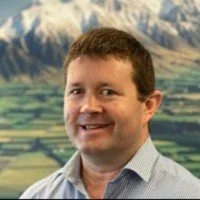This year’s Innovation series events will be tackling how innovation and sustainability are shaping the future of farming.
Agriculture in New Zealand is adapting to global and market changes through technological adoption, including precision agriculture and automation, and dealing with market access and trade dynamics. Land use change and shifts in economic pressures, including renewable energy projects and alternative land uses, are also hot topics to consider under this same theme.
In an ever-evolving global market, how can New Zealand farmers adopt technology to enhance productivity and stay competitive? This event will explore the role of precision agriculture, automation, and digital farming tools in shaping the future of farming. We will also discuss land use changes, including the shift to renewable energy projects and forestry. Join experts as they share insights on the latest technological advancements and economic trends impacting the agricultural sector.
This special Innovation Series event is brought to you in partnership with The Lincoln University Centre for Geospatial & Computing Technologies.
The Lincoln University Centre for Geospatial & Computing Technologies is a multidisciplinary hub that harnesses spatial science, data analytics, and applied computing to address complex environmental and agricultural challenges. By integrating geospatial and computing technologies with real-world applications, the Centre supports innovative research and practical solutions for sustainable land use, resource management, and rural development.
Tuesday 26 August
9.00am - 1.30pm
Patiki, Waimarie Building, Lincoln University
We hope you can join us!
Programme
9.00am: Welcome & Introductions
Introductions from Assoc. Prof. Stuart Charters, Lincoln University’s Centre for Geospatial + Computing Technologies
Opening remarks to set the stage for a day of insightful discussions on how innovation and adaptation are creating new opportunities for resilience in the agricultural sector.
Session 1: Technology on the Land – Precision, Automation & Profitability
9.15am – 10.20am
Exploring the practical applications of emerging technologies such as robotics, IoT sensors, and decision-support software, this session focuses on tools that drive smarter farming and greater economic resilience.
9.15am Keynote Speaker 1
9.35am Keynote Speaker 2 - Armin Werener, Lincoln Agritech
"The Rise of Smart Farming: From Drones to Decision-Making"
Lincoln Agritech will explore the integration of UAVs, remote sensing, and AI in farm systems, demonstrating how these tools contribute to better risk management and higher efficiency.9.55am Keynote Speaker 3 - Kenneth Irons
"Bridging the Data Divide: Unlocking Innovation Through Interoperability"
Drawing on his experience leading Agritech New Zealand, Kenneth Irons will discuss the critical role of data interoperability in accelerating innovation across the agri-sector. He will explore how breaking down data silos—across hardware, software, and supply chains—enables smarter integration, collaboration, and scalable solutions. Highlighting both challenges and opportunities, Kenneth will share insights into how open standards, cross-platform tools, and coordinated digital infrastructure are key to driving productivity, resilience, and sustainable growth on-farm and beyond.10.15am: Session Summary & Q&A – Assoc. Prof. Stuart Charters
10.20am: Break
Session 2: Emissions, Land Use Change and Alternative Revenue Streams
10.35am – 11.40am
With increasing pressure to reduce emissions and diversify land-based income, this session explores how economic innovation is helping reshape on-farm decision-making. From measuring methane outputs to navigating forestry and carbon markets, hear from leaders driving change through smart tools and bold business models.
10.35am Keynote Speaker 1 - Cairo Akehurst, CattleCredit
"Turning Methane into Market Value: Financing Emissions Reductions on Farm"
As the founder of CattleCredit, Cairo is pioneering a platform that uses MethaneSAT satellite data to quantify livestock emissions and reward farmers for reductions. He will share insights on how emissions can be tracked, monetised, and integrated into everyday farm business planning—especially for the next generation of climate-smart farmers.10.55am Keynote Speaker 2 - Prof. Alan Renwick, Lincoln University
"From Grass to Trees: Navigating the Economics of Carbon and Forestry Transitions"
Prof. Alan Renwick will discuss economic modelling for land use change, including the viability and risks of afforestation, carbon markets, and biodiversity outcomes.11.15am Keynote Speaker 3 - Rodney Smith, Rabobank
"Financing the Future: Enabling Land Use Change Through Smart Investment"
Michael will provide insights into how banks and agri-lenders are supporting land use diversification—from carbon farming and forestry to renewables and alternative production models. He’ll discuss the financial tools and strategic planning needed to future-proof farm businesses in a volatile economic and regulatory environment.11.35am: Session Summary & Q&A – Assoc. Prof. Stuart Charters
11.40am: Break
Session 3: Enabling Innovation – People, Policy, and Digital Infrastructure
11.50am – 12.55pm
This session will examine how policy, connectivity, and human capital are shaping the tech-enabled farm of the future, and what’s needed to support widespread adoption.
11.50am Keynote Speaker 1
12.10pm Keynote Speaker 2 - Mike Barley, HortPlus
"Digital Agronomy in Action: AI-Driven Tools for Smarter Crop Decisions"
Mike will showcase how HortPlus is leveraging artificial intelligence and data modelling to deliver smarter agronomic tools for horticulture. From disease forecasting to spray optimisation, this presentation will highlight how digital platforms are helping growers make timely, informed decisions that balance productivity with resilience.12.30pm Keynote Speaker 3 - Prof. Merata Kawharu, Lincoln University
"He Whenua, He Tāngata: AI, Innovation, and the Future of Māori Agribusiness"
Prof. Kawharu will offer a values-based perspective on using AI and digital tools to support Māori landowners in enhancing productivity while honouring cultural and environmental commitments. The talk will explore how innovation can align with kaupapa Māori to generate enduring prosperity for Aotearoa.
12.50pm: Session Summary & Q&A – Assoc. Prof. Stuart Charters
12.50pm: Session Summary & Q&A – Assoc. Prof. Stuart Charters
Closing Remarks & Networking
12.55pm: Summary by Assoc. Prof. Stuart Charters
1.05pm: Lunch and Networking
1.30pm: Event Concludes
Our Speakers
Assoc. Prof Stuart Charters
Assoc. Prof. Stuart Charter’s research focuses on the intersection of technology, agriculture, and ecology—an area described as computational agroecology—as well as the human dimensions of computing, including software engineering, visualisation, and eResearch. Their work explores how people engage with and interact with technology, with research spanning the design and deployment of environmental and on-farm technologies, data presentation through mobile and interactive visualisation, and the processes that support human engagement with these tools.
A key focus is on enabling effective technology adoption and data-informed decision-making by improving how data is interpreted and used. Through work in Evidence-Based Software Engineering, [Name] enhances research quality and develops tools and methodologies that allow research findings to be assessed for their impact on practice and policy.
They collaborate with researchers across New Zealand, Australia, and the UK, and were previously seconded as Director of SIGNAL ICT Graduate School, where they led initiatives to develop and grow New Zealand’s tech workforce.
Dr. Armin Werner, Lincoln Agritech
Dr Armin Werner is an agronomist with expertise in crop modeling, land use, and precision agriculture. He earned his PhD from the University of Bonn and held research roles at Michigan State University and as Director of the Institute of Land Use Systems (ZALF) in Germany.
Since 2013, Armin has led a multidisciplinary research group at Lincoln Agritech, focusing on precision farming, livestock, horticulture, spraying, and robotics. He also serves as an Adjunct Professor at Lincoln University, where he has taught Precision Agriculture since 2015.
Kenneth Irons
Kenneth Irons is the former Chair of Agritech New Zealand and serves as New Zealand’s Head of Delegation for the ISO Technical Committee on Data-Driven Agri-Food Systems. With a background spanning the medical, aviation, media, and banking industries across five countries, he brings cross-sector expertise in using real-time, sensor-based data to drive better decision-making. Now focused on agritech, Kenneth is Managing Director of AgSorted Ltd, leading investment and commercialisation projects that enable next-generation smart farming across international markets.
Cairo Akehurst, Cattle Credit
Cairo Akehurst is the founder and CEO of Cattle Credit, a pioneering agri-space tech startup developing satellite-based solutions to measure and monitor methane emissions from livestock. Focused on helping farmers navigate the transition to low-emissions agriculture, Cairo’s technology provides accurate, real-time data to support environmental reporting and sustainable practice on-farm. His innovative approach has earned national recognition, including the Prime Minister’s Space Prize and multiple Young Enterprise Scheme awards. Driven by a passion for space-enabled sustainability, Cairo is building Cattle Credit to empower farmers with the tools they need to thrive in a climate-conscious future.
Prof. Alan Renwick, Lincoln University
Alan Renwick has been Professor of Agriculture Economics at Lincoln University since November 2015. Prior to moving to New Zealand, he worked in academic institutions in England, Scotland and Ireland. During his 30 year career he has undertaken research on a wide range of issues facing the agrifood sector for both government bodies and industry. Recently a key focus of his work has been on the economics of existing and novel land uses and the processes involved in land-use transformation and adaptation to climate change. He is currently Co-Chair of the Lincoln University Centre of Excellence in Transformative Agribusiness which aims to be at the international forefront of solutions that will enhance the sustainability of the food and fibre sectors. Its role is to support the development of new products and new ways of working that increase economic and social value while reducing the environmental impacts of agribusinesses.
Rodney Smith, Rabobank
Rodney Smith is a seasoned Rural Manager at Rabobank New Zealand, serving farmers across the South and Central regions with hands-on, tailored financial and business support. Drawing on his background growing up on a Southland sheep farm and over a decade in rural transport and agribusiness finance.
At Rabobank, he collaborates closely with clients on irrigation, farm expansion, succession planning, and environmental compliance—helping to structure complex equity partnerships and transition farms toward sustainable, future-focused operations.
Mike Barley, HortPlus
Mike Barley is managing director and co-founder of HortPlus NZ Limited. HortPlus leads the development of digital decision support tools for the primary sector including the MetWatch Weather & Disease Platform.
Mike is passionate about the future of sustainability in New Zealand and how digital technology can help bring further insight to disease risk, irrigation, crop development, and other resource use. In 2021 Mike led the HortPlus Irrigation Futures team which was a top 10 finalist in the Food, Fibre & Agritech Challenge delivered by the University of Canterbury’s Centre for Entrepreneurship. Mike is also on the Executive Committee of the New Zealand Plant Protection Society.
Watch this space as we confirm more speakers for this event
Click here to see more events








